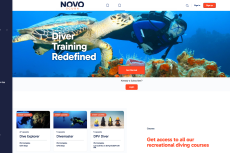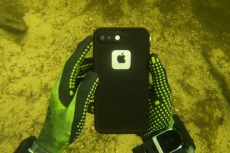Setting expectations right, what to say and not to promise.

OK, so you've made some arrangements with a dive operator to go visit their resort or live-aboard, or you've gotten a press trip invitation, to do some travel report for our magazine. Or you may have spoken to some manufacturer about reviewing one of their gizmos or contraptions.
Here are a few psychological mechanisms to be acutely aware of:
It not only matters what you actually say or write, the recipient may [choose to] interpret your words in a different manner, setting the scene for later disappointments or even disagreements.
People tend to just hear what they want to hear. And before we know it, we have made them some "promise" in their perception. Others may try later to twist matters and take more than we agreed to.
To prevent any such occurrences arising further down the line, be concise and chose your wordings with care. Before you hit "Send," look over your communication again while asking yourself how your message could possibly be interpreted in different ways than intended. Assume that if misunderstandings can arise, they will.
A technique to avoid misinterpretations is to reiterate matters but with a different choice of words.
Do not make any promises
Your counterpart may be anxious about what they are getting in return for providing XYZ, for example, a comp'ed stay. That is only natural. Any savvy business person want to know if there will be a reasonable return on investment, and not be taken for a ride.
However, for many reasons, we cannot and will not give any guarantees beforehand.
Firstly, we cannot control all circumstances. If you are going to visit with a dive operator, weather may not turn out well and you may blow out; expected wildlife encounters may not materialize; or there could be a technical mishap or delays. Shit happens. Also, as we usually come to places we haven't visited before, we don't know quite what to expect. We may be pleasantly surprised, disappointed, or find some other aspects are more interesting.
Secondly, exactly how we edit and design the article is something we'll do at some future stage, once we got the raw materials in-house. That is you have submitted to us your text, images and other bits and pieces.
How we are going to go about laying out the article, what we are going to emphasise, what images we are going to use and how many, how long it is going to be and so on is something the editors and art director (and only them) will decide at that juncure
We cannot, and will not, take any demands or requirements into account only consider reasonable requests and keep pointers in mind.
If we did give outsiders any say or sway, we would essentially allow clients to become co-editors, to some extent. Only cooks are allowed in the kitchen, so to speak, and they need to be able to do their job in peace and without interference. In a similar manner, what goes on in the editorial office is nobody else's business, and work is done behind closed doors.
How to respond
Instead, offer your assurances that you will go about the task in a professional and thorough manner, and so will the rest of the team. And that they can help facilitate the best possible results.
If you are still faced with any degree of insistence on getting guarantees for this, that or the other thing, you can offer to take note of their request, but you must emphasize that it is not your call to make. Refer them to the editor or publisher.
You may also state that no professional media shares any content prior to publication. That is a well-established practice and norm.
Assurances you can give:
- Direct them to our past published magazines and articles. Point out that past issues and articles are all quality work, and always have been. Indeed, the magazine has won several international awards.
- One of the hallmarks of our magazine is our extensive long reads, much longer than other publications'. The host/client will not be short-changed.
- We will give them the same professional and thorough treatment.
- We know what we are doing—we are professionals. We were established in 2003 and have gone on, from strength to strength.
We cannot show or share anything to anyone prior to publishing
As a matter of both established press practices and company policy, we cannot share or show any edits or article design with outsiders before the magazine is published.
Therefore, please note: Never share your texts, review or proofreading copy with anyone
If you are asked to share your text and/or layout, just say a polite "no", with reference to these general principles and/or refer any such questions to the editors.
If you have to ask for clarifications or comments, ask direct questions by email. Again, do not share. Do not show them your texts, regardless of what stage of completion they are in, and do not share the proofs that are sent to you before the magazine and article is published.
You can have a dialogue with operators, or ask for their opinion
In fact, speaking to the operator and/or interviewing them is only a good part of the fact-finding and background information that goes with researching an article. Whether parts of this information is suitable to go into the article is another matter, but having a good dialogue with the host always helps in building a better relationship. Who knows—maybe some useful pointers or leads can come out of it, which can improve the result. Quotes can also liven up a travel report.
When in doubt, refer the client to the editors.
















